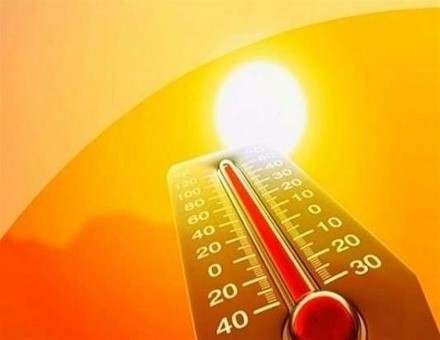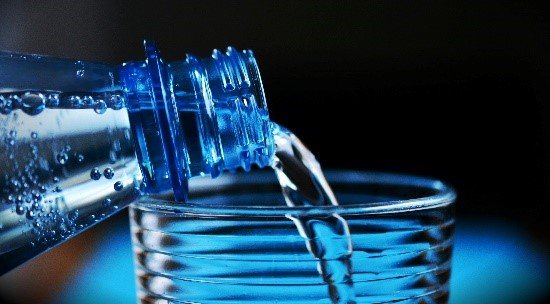Heat Illness
Yes, summer is here; it is time to take extra precautions and stay cool. Summer heat is no surprise to southern Nevada, but northern Nevada has its fair share of excessive heat warning days. It is a ruthless and even deadly problem. According to the Centers for Disease Control (CDC), nearly 1,200 Americans die from extreme heat each year, many of them older adults who do not realize when they are in danger of overheating.
Older adults are susceptible to heat-related illnesses because of poor circulation, which is critical to the body's cooling. Deep body fluids with raised temperatures travel through the bloodstream to the skin's surface for cooling, and poor circulation can obstruct this process. Additionally, individuals with poor circulation tend to feel cold in air-conditioned spaces. Older adults also do not sweat as effectively. Sweating is an important mechanism that allows cooling as the damp skin dries.
Those at greatest risk for heat stress include people over sixty-five, overweight people, and those with heart disease, dementia, diabetes, and other chronic medical conditions. Certain medications, including diuretics and others prescribed for hypertension and Parkinson’s disease, are also affected by extreme heat. Heat stress can result in five major illnesses: heat rash, heat syncope, heat cramps, heat exhaustion and heat stroke.
Types of Heat Illnesses:
- Heat rash is the mildest condition. It is a skin irritation caused by excessive sweating during hot, humid weather. The rash looks like a red cluster of pimples or small blisters, particularly in the neck, upper chest, groin, under the breasts and elbow creases. By being aware of these symptoms, we can take early action to prevent the condition from worsening.
- Heat syncope, better known as fainting or dizziness episodes, usually occurs after a sudden rise from prolonged sitting or lying during high temperatures.
- Heat cramps can occur in individuals who sweat heavily during strenuous activity, causing a loss of salt and moisture in the body, especially in the muscles of the abdomen, arms, or legs. In addition to standard care for heart illnesses, individuals who are on a low-salt diet or who have heart problems should seek medical attention.
- Heat exhaustion occurs when there is an excessive loss of water and salt, usually through excessive sweating. This results in pale skin, extreme weakness, dizziness, shallow breathing, confusion, and nausea.
- Heat stroke, the most severe heat-related disorder, occurs when the body’s temperature rises rapidly (up to 106 degrees within 10-15 minutes), the sweating mechanism fails, and the body cannot cool down. Without medical attention, heat stroke can lead to death or permanent disability.
Hyperlink To more
Heat Illness
In our first volume of newsletters, Dr. Annie Lyndsay wrote that if you love water, you must love her because water is mostly what she is made of (besides sugar, spice, and everything nice, of course!). Water, the liquid portion of our cells and tissues, is more than 60 percent of our body weight. It is the nutrient the body needs in the greatest amount. Every cell, tissue, organ, and life-sustaining body process needs water to function.
Water enters the body primarily through liquids and foods and leaves through sweat evaporation, moisture in exhaled breath, and excretion. Water balance is maintained with the help of electrically charged particles called electrolytes (e.g., potassium, sodium). For example, if the electrolyte sodium (or salt) content is high, the body may stimulate thirst to drink and absorb more water to maintain fluid balance.
Water needs vary for each of us depending on the foods we eat, the temperature outside, the humidity in which we live, our activity level and many other factors. During periods of high-water loss (e.g., hot weather, sweating, or exercise), our water needs increase. It may be helpful to eat a few salty snacks to help retain cellular fluids or stimulate thirst. However, as we age, we gradually lose our ability to feel thirst. This may result in dehydration. Aging also contributes to a slower ability to excrete water and electrolytes, which can result in water or sodium retention. This excess fluid may affect the heart and kidneys and contribute to high blood pressure. Medications can often further increase dehydration, and some can cause an increase in urine output, decrease appetite, or cause side effects like diarrhea or vomiting. Please contact your pharmacist to discuss your risk for dehydration based on the medications you are taking. The key to fluid balance is taking initiative.
Generally speaking, adults over sixty-five need about 1.7 liters of water daily (58 ounces or about seven cups). Sipping small amounts of fluid throughout the day is best, especially during hot weather and while exercising. Hydrate the body before and during exercise or physical activities, especially outdoors. Drink slowly for about two hours before your activity to allow time for fluid absorption and then drink periodically during the activity. An essential part of our regular diet is drinking water by the glass, getting it from foods we eat and even using it to prepare instant foods (e.g., oatmeal).
Some suggestions to add more water to your diet:
- At vending machines, choose water instead of soda.
- At restaurants, ask your server for water and lemon, lime or orange slices to infuse your water.
- Drink water, skim milk or juice (limited amounts) with meals and snacks.
- Add extra water to juice or juice beverages. A half-to-half ratio is a good rule.
- Limit alcohol and caffeine intake, as both increase urine output, causing dehydration.
- Eat plenty of fruit and vegetables, as they contain water.
- Beverages like sports drinks with electrolytes and small amounts of sugar can help the stomach absorb fluid better. But be careful! Too much sugar may reduce the body's ability to absorb fluid and hydrate the cells.
- Drink flavorful fruit, herbs and vegetable-infused water! It is very easy to make at home with your favorite combination of flavors. Using flavors instead of sugary ingredients makes it naturally low in calories and sugar.



